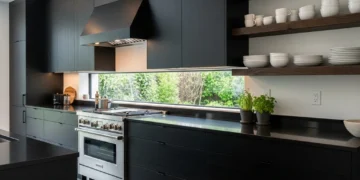Divorce is rarely straightforward. The emotional stakes are high, and every decision—regarding child custody, asset division, and support—carries significant weight. In an ideal world, couples could reach an amicable agreement; in reality, many end up in prolonged court battles. But there is another path: mediation. In this post, we explore how mediation can transform divorce negotiations into a more constructive process—one that lowers conflict and accelerates resolution. At the same time, you can find expert mediation services at https://mediationnorthwest.com/ when seeking professional support.
Understanding Mediation in Divorce
Mediation is a voluntary process in which a neutral third party, the mediator, assists divorcing spouses in negotiating and reaching agreements on contested issues. Unlike a judge, the mediator does not impose decisions; instead, they guide structured discussions and help the parties explore options. This collaborative approach empowers the divorcing couple to take control, allowing them to craft solutions tailored to their unique circumstances.
In traditional litigation, each side typically presents competing positions, often leading to entrenched stances. Mediation, by contrast, fosters open communication and encourages compromise. The mediator employs tools such as interest-based negotiation, careful proposal framing, and structured timing to prevent disagreements from escalating into hostility. Over time, this process encourages both parties to focus on their shared goals rather than rehashing past grievances.
Reducing Conflict
One of the most compelling benefits of mediation is its capacity to de-escalate conflict. When couples litigate, every motion, court hearing, or exchange of documents can reignite tensions. A trial can become a battleground. Mediation, on the other hand, offers a more controlled environment. By setting ground rules, allotting speaking time, and steering conversations away from blame, the mediator shapes discourse toward productive outcomes.
Because mediation emphasizes active listening and structured dialogue, spouses are often able to express their concerns in a way that feels safer. The set pace and framework discourage outbursts or emotional derailments. In many cases, even deeply wounded relationships can settle into more civil communication. That’s especially valuable when children are involved; reducing parental conflict is one of the strongest predictors of smoother post-divorce adjustment for kids. In short, mediation doesn’t pretend conflict is absent, but it frames dispute resolution as a joint project rather than a fight to be won.
Saving Time and Streamlining the Process
Another practical advantage of mediation is speed. Court systems are notoriously backlogged. Motions, hearings, and waiting lists can drag a divorce out for months or even years. Mediation sidesteps much of that procedural overhead. As long as both parties and the mediator can coordinate their schedules, sessions can proceed at a pace that suits them, rather than being dictated by the court’s calendar.
Moreover, mediation tends to reduce the cumulative legal expenses. Rather than paying attorneys to file motions, attend court, or argue procedural points, parties in mediation invest their time in direct negotiation. The number of ancillary tasks (e.g., discovery disputes, pretrial hearings) shrinks significantly. When an agreement is reached, it is drafted and submitted to the court for approval, thereby eliminating the need for many intermediaries. The net result is that couples often reach closure more quickly and at lower total costs than if they had pursued full courtroom litigation.
When Mediation Works Best—and When It Doesn’t
Although mediation offers compelling benefits, it is not a universal remedy. Its effectiveness depends heavily on the willingness of both parties to engage in good faith. If one spouse refuses to negotiate or persistently withholds financial information, mediation may stall. Cases involving domestic violence or safety concerns likewise present serious challenges to equitable mediation.
That said, even in higher-conflict situations, mediation can sometimes be adapted to suit the specific needs of the parties involved. Some mediators offer shuttle or caucus formats (where one spouse meets with the mediator at a time) or staged sessions with individual check-ins. Pre-mediation coaching or separating sessions can help stabilize communication before direct negotiation begins. That said, when adversarial dynamics are too entrenched, parties may need to shift their strategies or revert to litigation.
Also, mediation does not eliminate the need for legal advice. Usually, each party retains independent counsel (or consults with a lawyer between sessions) to ensure their rights are protected and to review the final agreement. The final mediated settlement is often submitted to a court as a consent agreement, making it enforceable.
Best Practices for a Smoother Mediation Process
To get the most out of mediation, preparation is crucial. Before sessions begin, both parties should gather relevant documentation (financial statements, property valuations, income records). They should also reflect on their priorities and decide where flexibility is possible. Entering negotiations with clear goals and realistic expectations helps keep the discussions focused.
Selecting the right mediator is also critical. Look for someone with experience in family law and divorce mediation who can effectively handle emotional dynamics and maintain neutrality. Ask about their process, how they handle impasses, and whether they allow individual caucus sessions if needed. A skilled mediator can defuse tension, spot sticking points early, and maintain momentum.
During mediation, maintaining respect, listening actively, and resisting the temptation to return to antagonistic patterns are essential. Because mediation is often faster, it still requires discipline to stay focused and not drift back into old disputes. Finally, after an agreement is reached, consulting legal counsel to review and formalize the settlement ensures the agreement holds up in court.
In closing, mediation offers a compelling alternative to adversarial divorce litigation. Emphasizing dialogue over confrontation it can significantly reduce conflict and emotional damage. Its streamlined pace and lower procedural burden often translate into faster resolution and lower costs. That said, mediation succeeds only when both sides choose to engage openly, and the process is supported by skilled facilitation.












